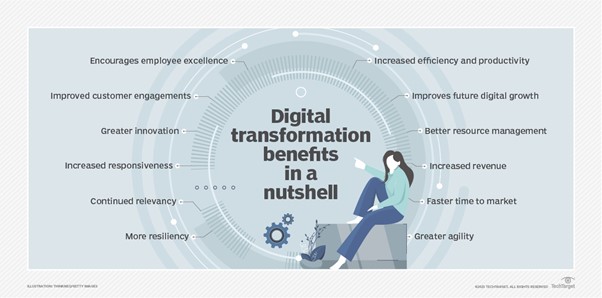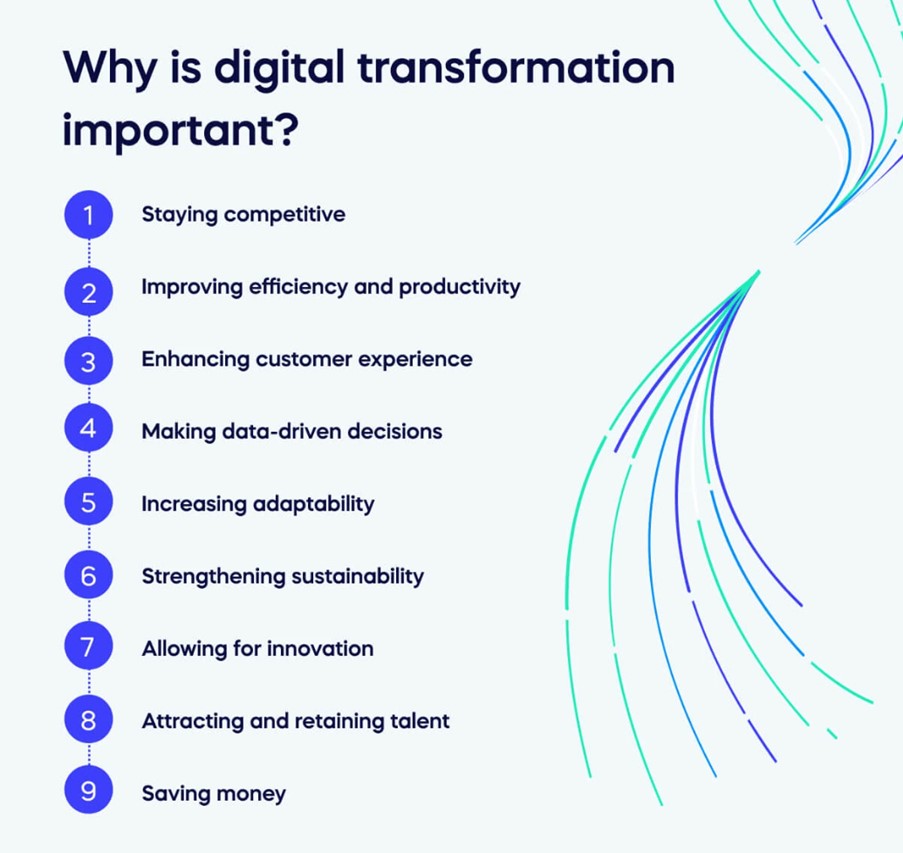Digital Transformation
Digital transformation is the incorporation of computer-based technologies into an organization's products, processes and strategies.
contact now
Digital transformation is the incorporation of computer-based technologies into an organization's products, processes and strategies.
contact now
Digital transformation is the incorporation of computer-based technologies into an organization's products, processes and strategies. Organizations undertake digital transformation to better engage and serve their workforce and customers, and thus, improve their ability to compete. In challenging economic times, operational efficiency and cost optimization can also become important transformation objectives.
No two businesses are identical, so digital transformation processes are not one-size-fits-all. A company’s approach depends on its needs, goals, and structure.
Often large in scope, a digital transformation initiative can require an examination and reinvention of all facets of an organization, from supply chains and workflows, to employee skill sets and org charts, to customer interactions and value proposition to stakeholders.

Digital transformation emerged more than a decade ago as an antidote to digital disrupters. The threat of disruption continues to drive today's initiatives. But several other factors can also inspire organizations to roll out digital technology to change important processes or revamp entire business models.
Those include the traditional business virtues of reducing waste and eliminating redundant processes. Enterprise Strategy Group's "2023 Technology Spending Intentions Survey" identified operational efficiency as the top driver for digital transformation initiatives.
Customer-facing initiatives are also ripe for digital innovation. Organizations are motivated to transform customer experience (CX), through modernizing contact centers and launching new digital offerings for buyers. The ability to create data-driven products and services ranked second on the list of digital transformation drivers, according to the Enterprise Strategy Group survey. Providing a better and more differentiated CX placed third
The drivers behind digital transformation point an organization toward a key goal or goals. The actual objectives, however, will depend on what business leaders consider the proper scope of an initiative and the resources at their disposal.
For example, an organization could focus strictly on the goal of transforming a business process, eliminating redundant activities or automating manual hand-offs to prevent data-entry errors. A revamped business process, enabled by digital technologies, increases productivity and business velocity. This type of transformation harkens back to the business process reengineering projects of the 1990s.
A step up from business process transformation, business model transformation seeks to reinvent a segment of a business or, potentially, the entire operation. The transition from a brick-and-mortar company to a digital business provides one example of wide-ranging transformation. Initiatives at this scale will require more funding and a wider range of skill sets.
An enterprise may also seek a middle path, selecting and transforming related processes within a particular business concern such as CX(Customer Experience). Other types of transformation include domain transformation and cultural transformation, with the latter goal featuring in nearly all initiatives.
Digital leaders that reach their transformation goals stand to gain several advantages. The core digital transformation benefits -- all interrelated and interdependent -- include:
Overall, digital transformation enables organizations to succeed in this digital age: For businesses, that success means higher revenue and bigger profits. Other types of organizations, such as nonprofit institutions and government agencies, can better meet the needs of stakeholders or improve citizen services.
